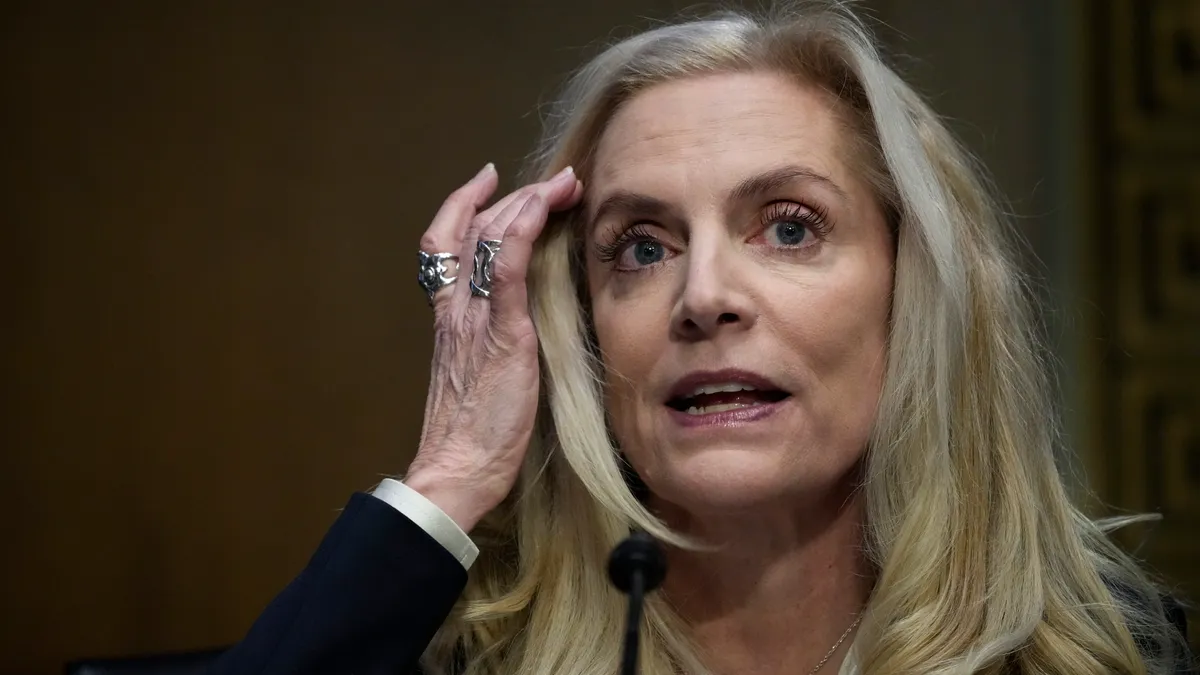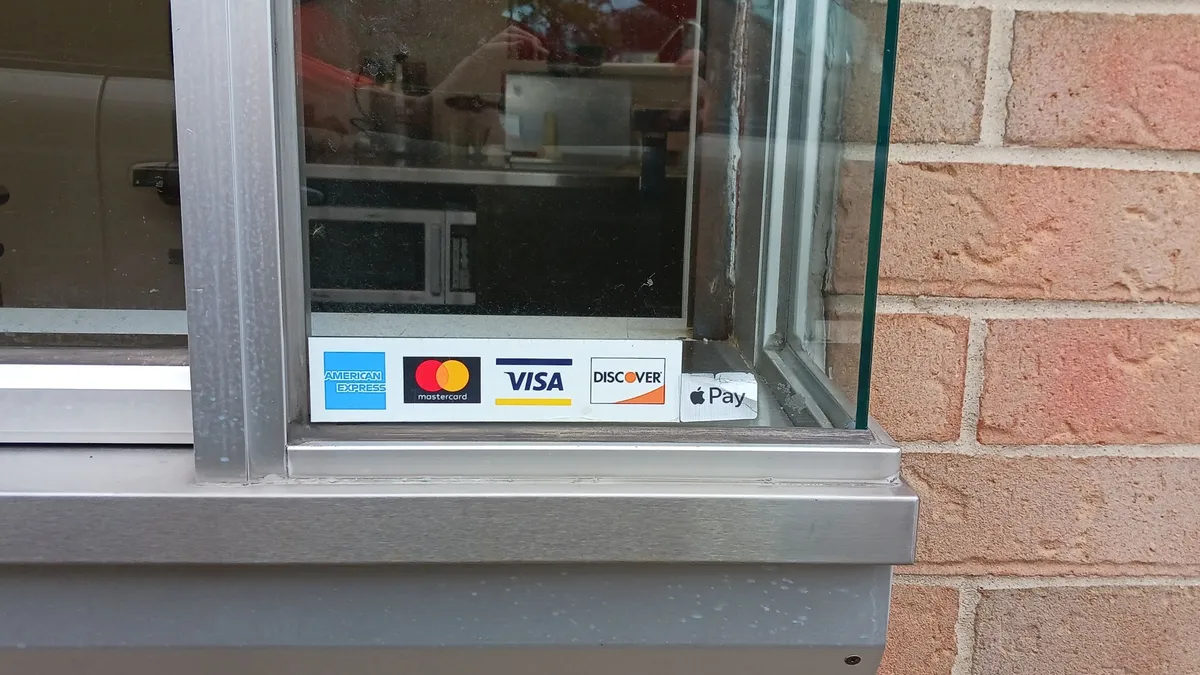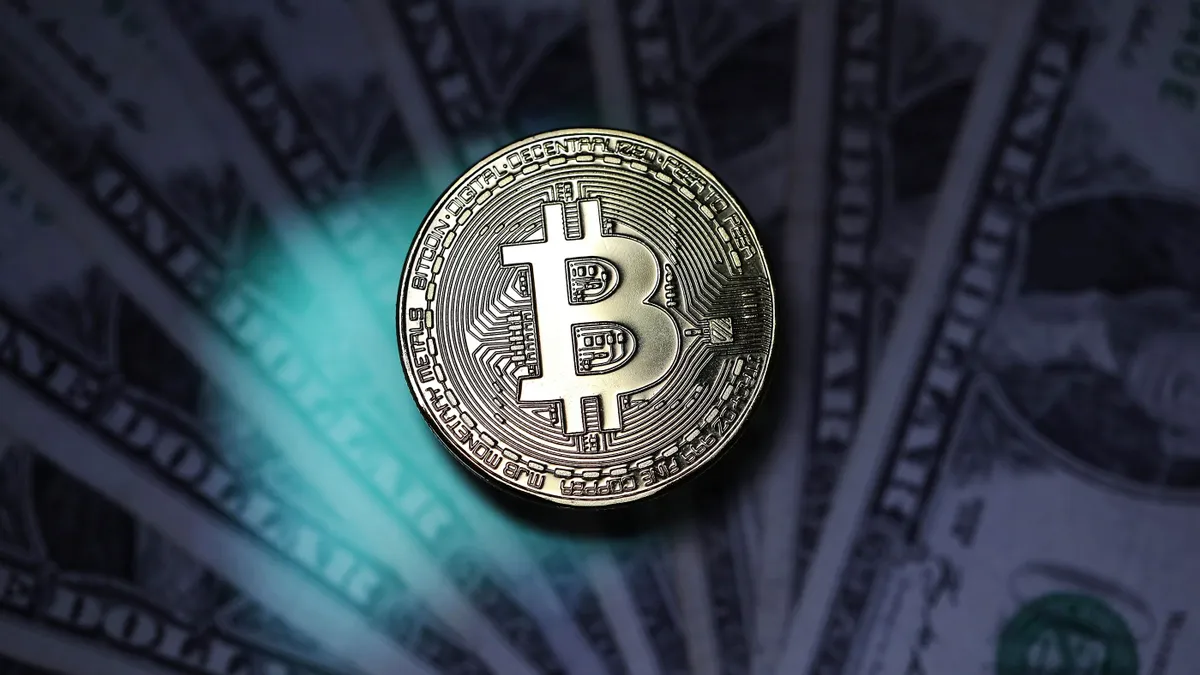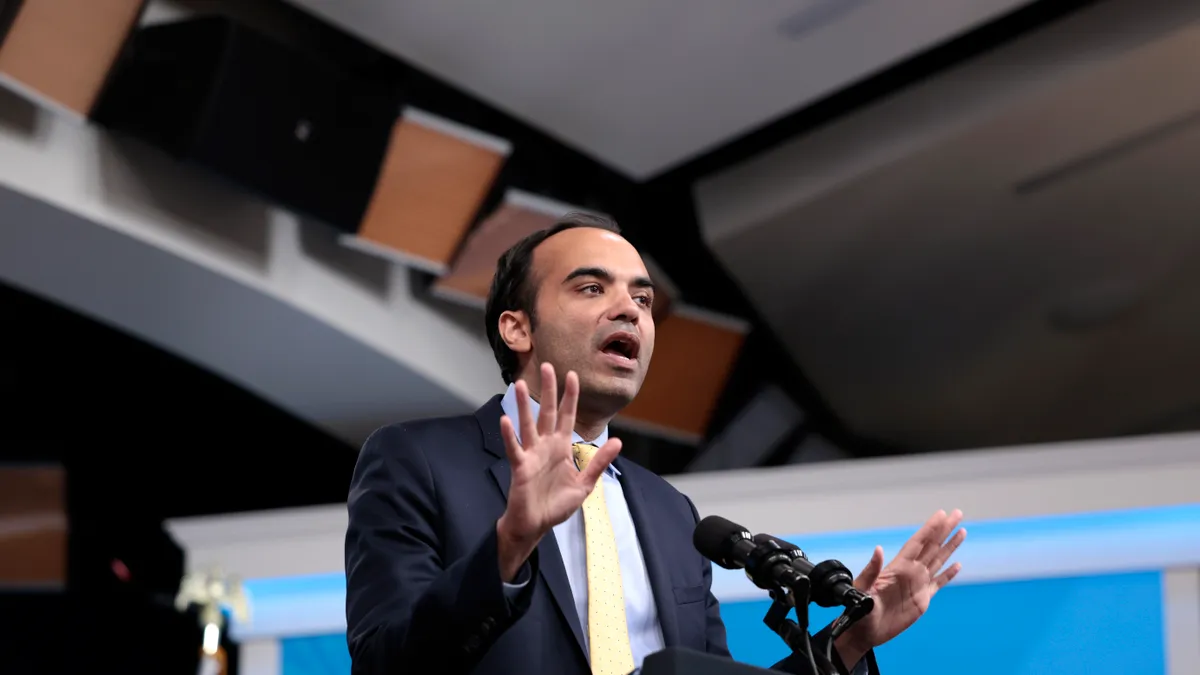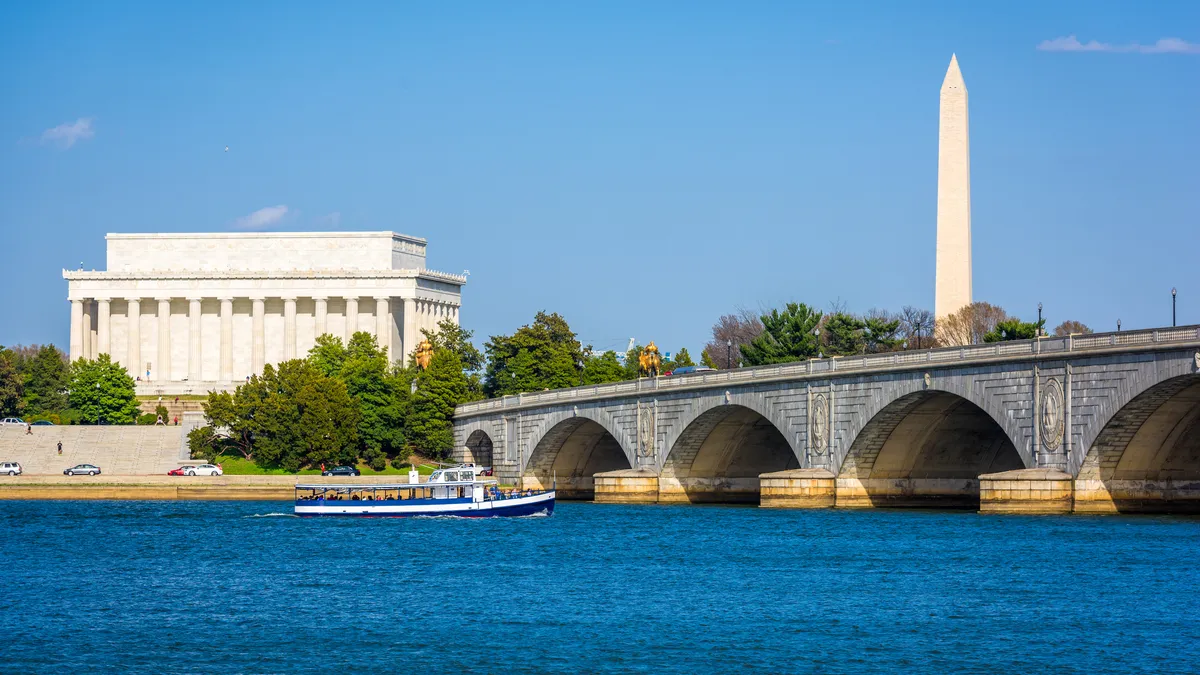As 2022 gains momentum, a number of unknown quantities loom in the banking regulatory sphere. Among the most substantive debates may be how to regulate cryptocurrency — or, more specifically, which agency should.
Toward the end of last year, several crypto firms sketched out their visions of how they would prefer to be regulated. Coinbase — weeks removed from scrapping the planned launch of an interest-bearing lending product after it said the Securities and Exchange Commission (SEC) threatened to sue — proposed the U.S. create a new regulator. Ripple, which has had its own tussle with the SEC, leaned toward the Commodity Futures Trading Commission (CFTC).
Lawmakers, too, have weighed in, as the Republican and Democratic leaders of the Senate and House Agriculture committees expressed, in a letter to CFTC Chairman Rostin Behnam, their concerns about fraud and manipulation in decentralized finance. They asked Behnam what the CFTC is doing to protect consumers and how it might collaborate with other regulators, emphasizing the "critical role" the agency plays in the space.
The subtext may very well be: Don’t let the SEC overstep. SEC Chairman Gary Gensler has said he hopes to bring crypto trading platforms under his agency’s oversight this year.
"If the trading platforms don’t come into the regulated space, this will be another year of the public being vulnerable," Gensler told The Wall Street Journal last week.
Gensler’s agency has led a charge singling out crypto products as unlicensed securities, typically using the 1946 Howey test as precedent in the argument that crypto should fall under the SEC’s domain.
The lawmakers, in their letter to the CFTC, stressed Bitcoin and Ethereum’s status as commodities — and Gensler, too, has said he considers Bitcoin a commodity but hasn’t commented on Ethereum.
Bitfury CEO Brian Brooks, himself a former regulator, indirectly criticized the SEC’s approach during a December hearing in front of the House Financial Services Committee, urging lawmakers to scale up their thinking.
"Instead of focusing only on micro questions such as whether a particular token is a security or whether a particular exchange-traded fund may be offered, it would be worthwhile for the elected branches of government to grapple with the bigger questions," he said.
For example, he added, "is it consistent to take the position that only banks should be allowed to issue stablecoins, but then fail to grant bank charters to the largest issuers of stablecoins? … Or does it make sense to bring enforcement actions challenging certain cryptoassets as unregistered securities, but then fail to allow those assets to be registered and trade on a national securities exchange or alternative trading system?"
Fed knowns and unknowns
If the "what" of this year’s regulatory agenda seems daunting, potential pitfalls to rulemaking progress may first hinge on the "who."
And here, lawmakers face a host of knowns and unknowns, too. Sometimes in the same body.
The Federal Reserve Board of Governors, for example, consists of seven seats. But as of now, only four are filled.
Senate Banking Committee Chairman Sherrod Brown, D-OH, told Bloomberg he plans one hearing early next month to address all three of President Joe Biden’s picks for the open roles. While Democrats may welcome — for expediency — the prospect of lumping them together, the strategy could backfire if one of the nominees tests poorly.
The focus of the hearing undoubtedly will be Sarah Bloom Raskin. For one, the role for which she’s nominated — vice chair of supervision — is more pivotal for policy than that of other Fed governors. For another, she’s a known quantity. She served as a governor at the Fed from 2010 to 2014 and contributed to rules implementing Dodd-Frank Act-related changes.
But she has also been an outspoken advocate to overhaul the way the Fed addresses climate change.
Raskin, in a May 2020 New York Times opinion piece, criticized the Treasury and Fed for allowing oil, gas and coal companies to be eligible for government-backed emergency-lending relief early in the COVID era.
That has raised a red flag from at least one prominent Republican on the Senate Banking Committee, ranking member Pat Toomey of Pennsylvania.
"I have serious concerns that she would abuse the Fed’s narrow statutory mandates on monetary policy to have the central bank actively engaged in capital allocation," Toomey told Bloomberg in a statement earlier this month.
The question stands: Will lawmakers approve Raskin given what they know of her climate stance? If so, that bodes well for her fellow Fed nominees, Lisa Cook and Philip Jefferson.
To be sure, they will get their own examination during the hearing. But if lawmakers fail to separate their views on Raskin from those regarding the other nominees, Cook's and Jefferson's chances may suffer, too.
The Brainard test
As a test case, the banking sphere can look at how the full Senate treats another known quantity: Lael Brainard, the Fed governor Biden nominated to fill the central bank's other vice chair role.
Brainard and Fed Chair Jerome Powell each fielded questions this month from senators on the central bank's role regarding climate change — but Brainard's generated considerably more pushback.
Powell said the Fed had a "narrow" yet "important" role in climate-change policy, asserting the central bank is "looking at climate stress tests," calling them "a key tool going forward."
However, when Toomey asked Brainard two days later whether her support for more climate research and analysis at the Fed was "a precursor to direct capital away from" fossil-fuel companies, she said, "We would not tell banks which sectors to lend to or not lend to, but we do want to make sure they are measuring, monitoring and managing [their] material risks."
She also noted, "I have not suggested we do stress tests for climate" — to which Toomey said he saw "little more than a semantic difference" between the Fed’s climate scenario analysis and a full-fledged stress test.
Brown projected Powell would win bipartisan support for a second term. "I don’t see more than a small, small handful of 'no' votes on the committee, and I can’t imagine there are that many on the floor," he told Bloomberg. However, no Republican senators pledged to vote for Brainard, who was confirmed to her governor role in 2014 by a 61-31 margin.
If Brainard's tally is narrower in 2022, it could signal a tougher road for Raskin, Cook and Jefferson.
Still, another factor may prompt Republicans to withhold support from nominees seen as more liberal-leaning: fear that putting more Democrats on regulatory bodies may shift the power dynamic. Although there are only four Fed governors, three are still Republicans. Approving Biden's slate of nominees would give the central bank a 4-3 Democratic bent.
And the dust-up between Democratic members of the Federal Deposit Insurance Corp. (FDIC) board and the regulator's outgoing chair, Jelena McWilliams, is still fresh in mind.
"A five-member board overturned 88 years of tradition and independence with Biden political appointees, led by [Consumer Financial Protection Bureau] Director Rohit Chopra, forcing out the FDIC chairman before her five-year term was up, strictly for partisan reasons," Sen. Bill Hagerty, R-TN, said during Powell's hearing, according to American Banker. "This incident causes me to worry that an activist block at the Federal Reserve Board could sideline you."
Powell replied the Fed has "a history ... of working collaboratively and coming together and getting consensus on issues."



